This week, (a sick) Daniel and Kelly talk one of Dylan's prettiest tunes, "Seven Curses." They talk Judy Collins, rhyme structures, the power of the number seven, and figure out how Kelly loved this song despite its lack of harmonica.
EPISODE
SHOW NOTES
“Seven Curses” was first performed live on April 12, 1963 at Town Hall. It was recorded on August 6, 1963. It did not end up on Freewheelin’ or any other record, making its appearance on the first Bootleg Series then a version of him recording his Witmark Demos on TBLS Vol. 9: The Witmark Demos, 1962-64.
Context
Daniel and Kelly both heard this song on the Great Plains, somewhere in a rapidly advancing but not quite set American west. The song is, in a wonderful turn of phrase, a “quasi-traditional” ballad. But that’s what makes the song so unique: its setting is lonesome and desolate enough to reside anywhere. Greil Marcus notes the melody harkens back to feudal Britain. The thrust of the song itself comes from Hungary. According to Clinton Heylin, “Dylan is adapting a Central European folk legend – concerning a judge who seduces a young girl by promising to save her father/brother from the noose, only to break his word –making it heartbreakingly real to a new audience.”
The similarities to Judy Collins’ “Anathea” are clear (6:00)
In Collins’ version, it’s the brother, Laszlo, instead of the father, in prison for horse thievery. She offers gold but the judge is as predatory here as in “Seven Curses.” The brother knows the game and advises his sister to let him be, he would die regardless. (Heylin: “I tend to prefer the brother’s more understandable suspicions, though Dylan’s portrayal of the father unquestionably displays its own psychological power.”) He was right. Anathea curses the judge, thirteen instead of seven:
Hearken Judge, Judge Horvat, May your horse stumble on his feet. May your horse stumble on his feet, And you be thrown to the ground. May thirteen cartloads of straw Rot away in your bed! May you for thirteen years Lie upon it in cruel illness! May thirteen doctors work At dressing your wounds, Thirteen shelves of drugs Be emptied on your account! Indeed, Judge, I wish you well! May your washing-water turn to blood, Your towel spit flames, And God never bless you!
Heylin notes that Collins responded to the overlap of “Anathea” and “Seven Curses.” She understood their connection but stated:
[But] there are old themes, world themes, centuries old dramas that get worked out in the creative process by artist after artist…. I see what Dylan has always done is to connect with this inner, subterranean river of the sub-conscious.
Speaking of that subterranean river of the sub-conscious, Kelly dove into the power of the number 7 (11:00)
There are 7 celestial bodies we can observe: the sun, the moon, Mercury, Venus, Mars, Jupiter, and Saturn. Our worship of them filtered down into the real world: their are seven lucky gods of fortune in Japan. The Bible loves the number 7: days in Genesis, days it took King Solomon to build his temple, 7 deadly sins, seals, sacraments, plagues (to say nothing of the Faith of the Seven of in Game of Thrones: the Father, the Mother, the Maiden, the Crone, the Warrior, the Smith, and the Stranger).
Their are 7 chakras (root, sacral, solarplexes, heart, throat, third eye and crown), 7 notes of musical scale, 7 colors in the rainbow, 7 is the sum of every opposite die face. There are (were) 7 wonders of the world, 7 seas, 7 continents. Seven is a prime number. It’s the only single digit number with two syllables.
Don’t forget seven years of bad luck. That came from Rome. They believed people regenerate every 7 years and mirrors reflected your soul. Thus, breaking a mirror was breaking that regeneration power.


Kelly’s booklet, naturally, had nothing to do with the number 7 but instead concerns the Curse of Scotland and the card game, Pope Joan. We will probably never revisit this thread.
So what of the song itself (17:00)
Musically, this is a highlight for both Daniel and Kelly. Daniel notes the open tuning of the guitar picking up perfectly the somberness of the song. Both agreed the studio recording, on The Bootleg Series, Vol. 1-3, was the best (or, at least, different: Town Hall was slowed down and the Witmark demo was sped up). His voice was incredible and, to Kelly’s surprise, that fulfillment with the track came despite the notable absence of harmonica!
Daniel looked into the rhyme scheme (and the internal rhymes) and how unique this song is to Dylan, who can get away with unconventional sounds and making words that don’t rhyme, rhyme.
Thematically, they delved into the brutality of this setting, this frontier, this lonely place. The term “quasi-traditional” is apt because it sounds ancient but it isn’t. They discussed the judge and authority (in this song and in recent weeks, i.e. “The Lonesome Death of Hattie Carroll” from our review of TBLS Vol. 5: Rolling Thunder Revue and “Drifter’s Escape” on John Wesley Harding) as well as the unnamed woman at the heart of this story and so many others.
She was brutalized, raped, cheated, and lost everything to someone she was probably taught to respect and defer to and plead with because of high ideals like fairness and justice. No, she learned too late. After seven verses of injustice, we curses the judge with her seven curses:
That one doctor will not save him, That two healers will not heal him, That three eyes will not see him. That four ears will not hear him, That five walls will not hide him, That six diggers will not bury him And that seven deaths shall never kill him.
Tony Attwood put it best when it came to Dylan’s focus during the song, which I believe gives this mythical power:
“There is no bile and no vindictive feeling coming from the singer, for he is still singing the same song in the same way with the same accompaniment – the emptiness is endless, as will be said in another context. But instead the repeating of“him” [at the end, save him, heal him, see him, hear him, hide him, bury him, kill him] is like the hammer blow.”
Marcus agrees:
That old melody turns out not to be the skeleton of the song, but its flesh; it carries its own, unspoken words, which are ‘there is nothing new under the sun.
The song is, in the end, more cathartic than karmic. The daughter wishes for all this peril to fall on the head of a judge so cruel but we don’t get the next verse. We don’t see the judge walk away from a grieving daughter nor do we see him hunched over, slowly having the life drained from him. One can attach their own ending, even if the song will try its best to steer you down the darker paths of our soul.
MIXED UP CONFUSION
This week, after a few off, we talk iZombie, Brand New’s Science Fiction, and recount Against Me!’s latest show in Portland.
THE EPISODE’S BOOKLET & PLAYLIST
RECOMMENDATIONS (30:20)
Kelly is catching up with Season 3 of BoJack Horseman in lieu of its fourth season premiere this week (which Daniel had already watched).
Daniel recommended the trailer for The Disaster Artist, Tim Barry’s High on 95 and had some words for the passing of Grant Hart, drummer of Hüsker Dü.
ENDINGS
We’re down to 505 songs.
Kelly guessed #3 – "Apple Suckling Tree" from The Basement Tapes.
It’s #211. "Maybe Someday," off 1986’s Knocked Out Loaded.
“This’ll be fun,” said no one.
Next week: Possibly, at some time in the future.
Follow us wherever you listen to podcasts. See our real-time playlist See That My Playlist is Kept Clean on Spotify. Follow us intermittently on Twitter and Instagram.
Tell your friends about the show, rate and review wherever they let you, and consider supporting us by subscribing or at Patreon.



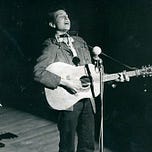



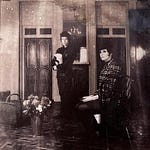
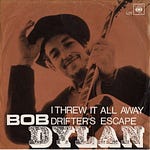
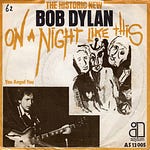

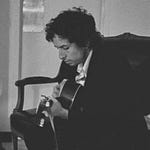
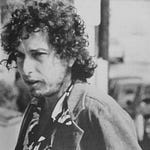

Share this post